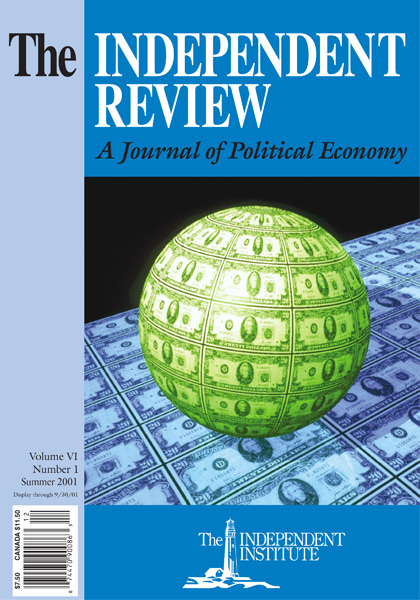Both the left and the right have recently attacked the classical liberals for their assumptions of “hyperrationalism” and “extreme atomism.” Those criticisms fall flat when directed at the classical liberals of the Scottish Enlightenment tradition, who argued that many useful human institutions (including language and the market) are not the result of conscious design but are unintended consequences of social interaction.
Steven G. Horwitz was Distinguished Professor of Free Enterprise and the Director of the Institute for the Study of Political Economy at Ball State University.
Economic History and DevelopmentEconomic PolicyEconomistsEconomyGovernment and PoliticsLaw and LibertyPhilosophy and ReligionPolitical HistoryPolitical Theory
| Other Independent Review articles by Steven G. Horwitz | ||
| Winter 2020/21 | Crusoe and the Economists: An Accounting | |
| Fall 2019 | F. A. Hayek: Economics, Political Economy, and Social Philosophy | |
| Fall 2017 | Success and Luck: Good Fortune and the Myth of Meritocracy | |
| [View All (8)] | ||









